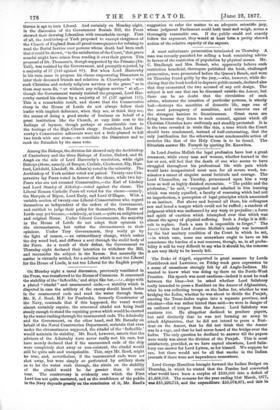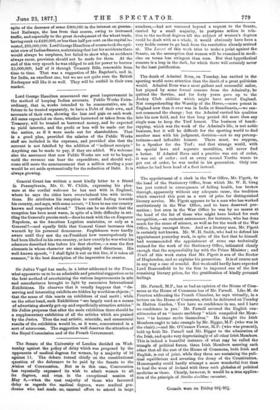Lord George Hamilton brought forward the Indian Budget on Thursday,
in which he stated that the Famine had converted what would have been a surplus of £624,000 into a deficit of £1,858,158. The revenue for the year ending 31st March, 1877, was 151,220,713, and the expenditure £53,078,871, and this in
spite of the decrease of some £800,000 in the interest on guaran- teed Railways, the loss from that source, owing to increased traffic, and especially to the great development of the wheat trade, baring sunk to 1420,000, or less than hall per cent. on the capital in- vested, £95,000,000. Lord George Hamilton of course took the opti- mist view of Indian finance, maintaining that but for accidents there would always be surpluses, but failed to show why, as accidents always recur, provision should not be made for them. At the end of this very speech he was obliged to ask for power to borrow 15,000,000, half of it through Treasury Bills, renewable from time to time. That was a suggestion of Mr. Bagehot's, and is, for India, an excellent one, but we are not quite sure the British Exchequer will like it so well. They will be outbid in their own market.



































 Previous page
Previous page